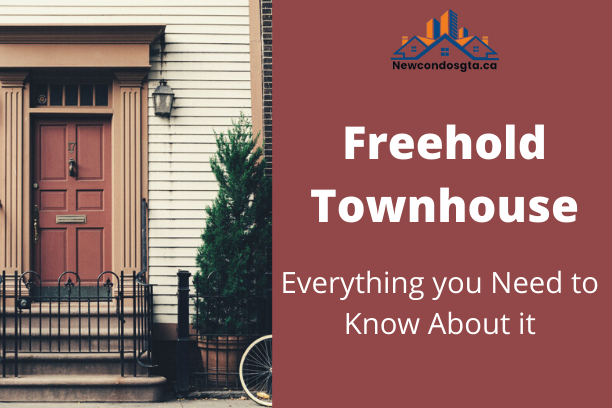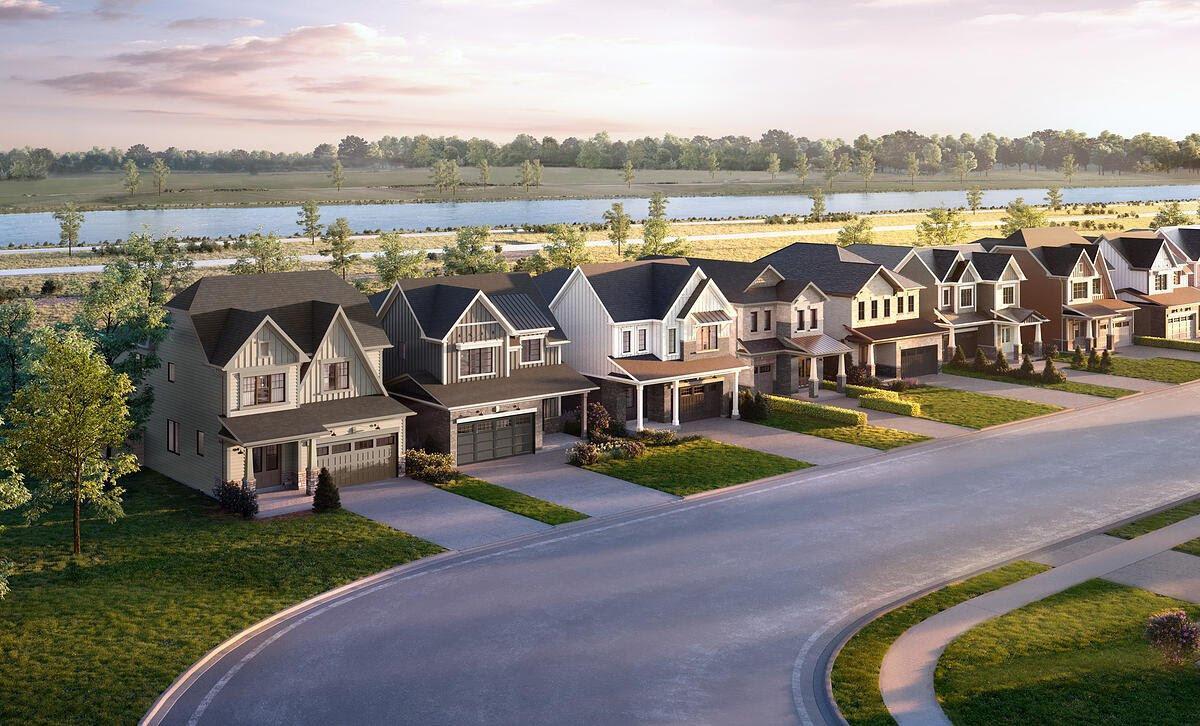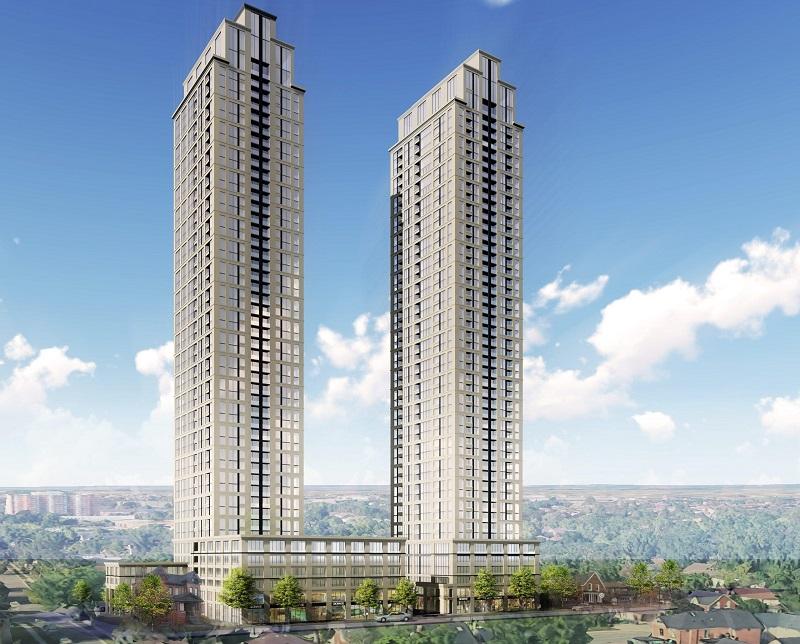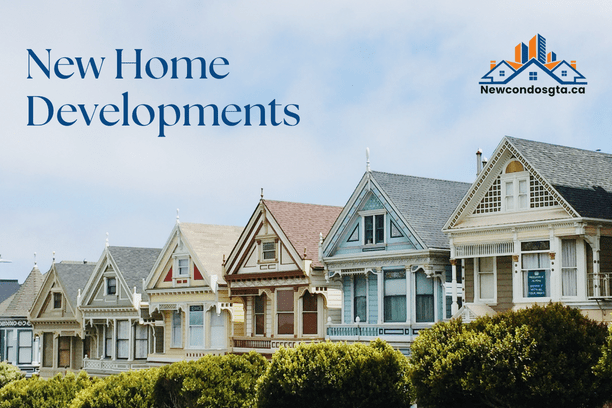
What is a Freehold Townhouse? Everything you Need to Know About it

Are you on the hunt for a new house? Choosing the right house for you and your family is essential before you move in. Fortunately, there are a wide variety of house styles to pick from. But how do you know which one is best for you?
Interest in freehold townhouses for sale in Toronto, particularly the GTA and neighbouring regions, has increased in recent years. If you’re wondering why it’s so popular, consider this:
To have a better idea of what a freehold townhouse is, we’ll take a look at some of its advantages and disadvantages.
What is a Freehold Townhouse
The ownership structure of a freehold townhouse resembles that of a detached house, as opposed to other forms of property.
To put it another way, “freehold” townhouses don’t require to be maintained and condo fees aren’t owned by their owners.
Freehold townhouses are also known as townhouses or townhouse condos.
To put it simply, townhouses are multi-level homes that share one wall (an end unit) to two walls (neighbours on each side) with their neighbours. Townhouses, as opposed to flats or condo buildings, each have their own private entrance.
These multi-level residences with assigned parking spots and a shared wall with another residence are often known as freehold townhomes, and they are located in a neighbourhood development (or homes). Consider these benefits of owning a pre construction condos in Toronto before making your next real estate purchase.
You have the ownership of a freehold townhouse
The building and the land are both owned by the freehold townhouse owner. Local building and zoning rules allow them to have total control over how the facility is used, decorated, and maintained. Compared to a single-family house, freehold townhomes often have tiny size of land that requires minimum lawn maintenance.
Family-friendly
Freehold townhouses, especially condos townhouses in Toronto tend to be centred around areas that are ideal for families. If you live in a location with a lot of traffic, you may not have the opportunity to let your children ride their bikes or go for lengthy nighttime strolls.
Condominiums, on the other hand, have their target market: young professionals and families with young children who don’t need a lot of space to play. In contrast, Toronto’s middle-class families rely heavily on freehold townhouses.
No Monthly Maintenance Fees Apply to Freehold Townhouse Residents
Owners of freehold townhouses do not have to pay monthly HOA fees, which in Toronto may range from $0.50 to $1.00 per square foot.
Owners are responsible for everything from the roof, outside walls, driveway and garage, as well as landscaping and snow removal.
Since they are not required to pay a monthly HOA fee, freehold townhouse resisters have more freedom to update or maintain the home’s amenities at a time that is most convenient for them financially.
Homeowners may save money by mowing their own lawn and shovelling their own snow, and they can do it at their own discretion.
In the same neighbourhood, freehold townhomes are often less expensive than private residences.
Freehold townhouses provide the same financial benefits as private residences, but they are less costly.
Because there is no HOA charge in freehold townhouses, the monthly cost is lower than in condominium townhomes. Living in a townhouse might save you money on your monthly energy costs because of the shared walls that keep heat in.
Easier for townhouses to access
Condominium fees are a major turn-off for many investors since they limit the likelihood of making a profit.
A Toronto new condo, on the other hand, is both more affordable and less burdened by set ongoing payments that might make ownership as an investment seem like a tightrope to tread.
Different terrace than condo
If you buy a freehold townhouse, you’ll have your own garden where you can relax in peace and quiet. Unlike in a condo, you won’t have to deal with other residents’ cigarette smoke ruining your calm stroll across the courtyard.
Freehold Townhouse Vs Condo
Generally, townhouses are divided into two categories: those that are part of a condominium company, and those that are freehold properties. As with a high-rise apartment, a condo townhouse is managed by the condo company, which is in charge of things like budgeting and upkeep.
Services including landscaping, seasonal yard maintenance and exterior repairs are included in the monthly condo fee. For individuals who don’t want to deal with the hassles of homeownership, condo townhouses might be a great alternative.
The disadvantage of living in a condo townhouse is that you must follow condo regulations, which means you may have less say in how your property looks and feels. When it comes to the outside of your townhouse, such as putting up a grill on your balcony, you may not be allowed to do so.
In addition, if an emergency repair or financial problem arises, you may be asked to pay a special assessment as a condo board member. In contrast, living in a freehold townhouse is the closest thing you can come to a detached home.
Unlike condos, your house is not part of a business, therefore you own the unit — both the outside and inside – in its entirety. You won’t have to pay any condo fees or extra assessments when you decorate or remodel your house.
For these reasons, freehold townhouse sales in Toronto are in greater demand, and they tend to be more expensive and grow in value more quickly than condos.
Ownership of a freehold townhouse, on the other hand, entails the entire burden of homeownership. Any repairs, improvements, or upkeep on your property are your responsibility; if your house needs a structural repair, you’ll have to foot the bill.
Additionally, you will not be safeguarded by the aforementioned condo laws – should you have loud or intrusive neighbours, for instance, it is automatically police or civil problem rather than action taken by a condo board.
 May 9, 2022
May 9, 2022



